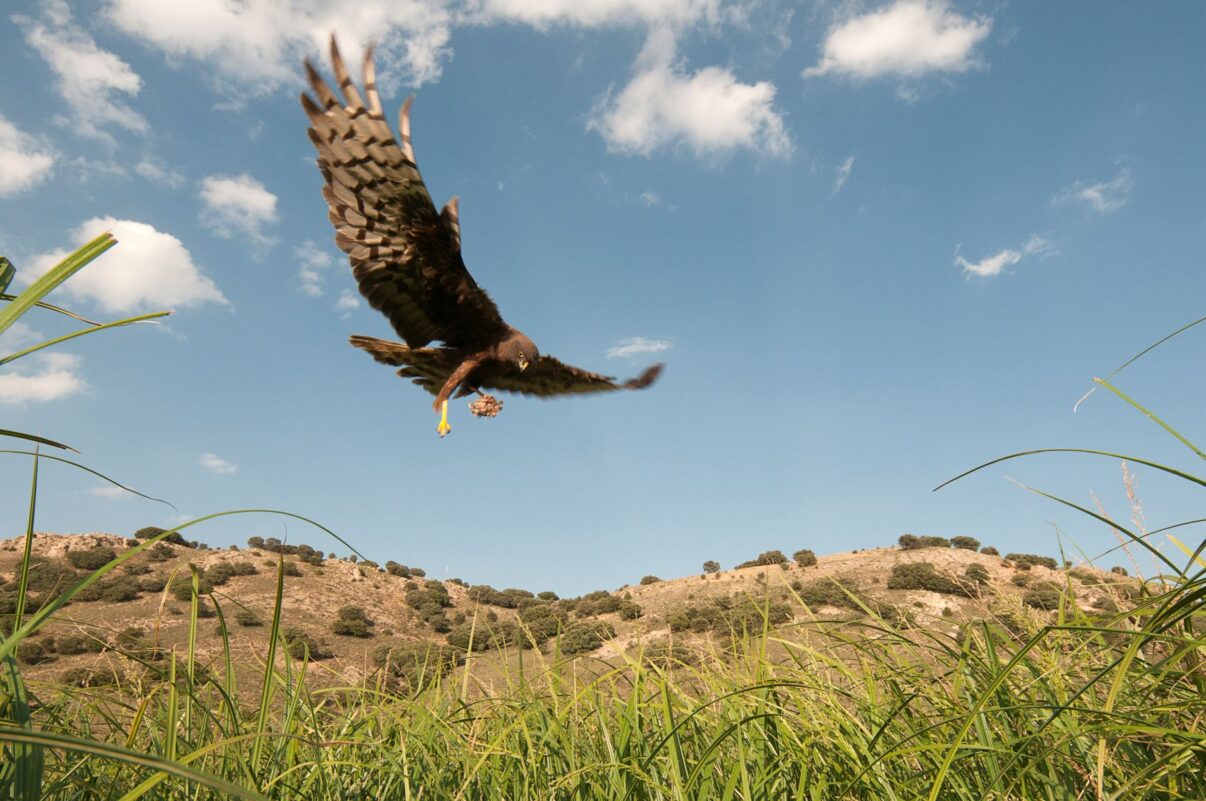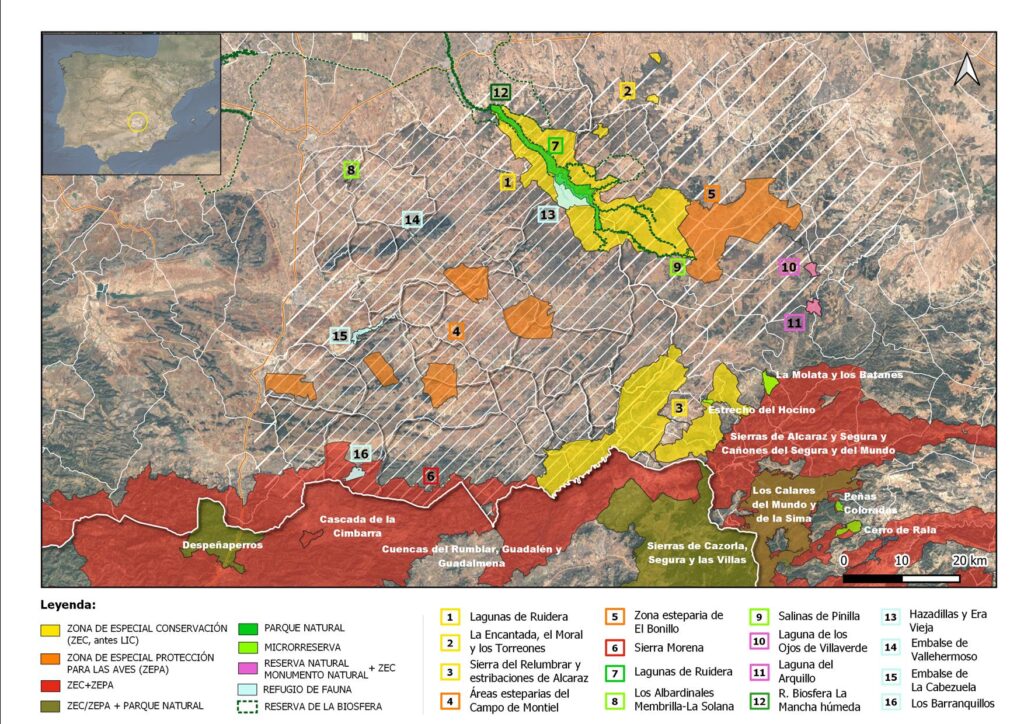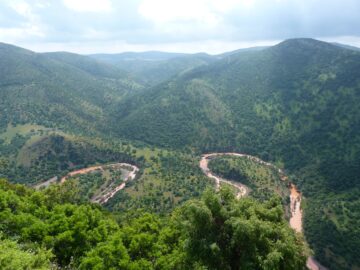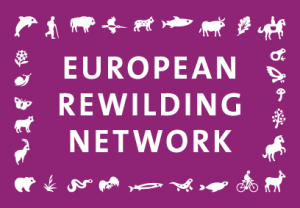Rewilding can restore the wild nature of Spain’s Campo de Montiel region and provide new opportunities for its people. Joining the European Rewilding Network will help the Campo de Montiel + Natural initiative deliver such a transformation.

Landscape-scale rewilding
The Campo de Montiel is an extensive upland region of south-central Spain characterised by a mix of agricultural land, forest and shrubland. It boasts a number of protected areas and is home to such iconic species as the (reintroduced) Iberian lynx, the Iberian imperial eagle, Montagu’s harrier and the great bustard. It also has a rich cultural heritage linked to traditional forms of agriculture (such as transhumance) and a distinct gastronomy. Today, however, like much of Spanish interior, the region is threatened by intensive agriculture and hunting and long-term rural depopulation, as well as various mining projects.
The International Foundation for Ecosystem Restoration (FIRE), a Spanish NGO with branches in Chile and Paraguay, is now looking to rewild much of the Campo de Montiel, with a view to enhancing wildlife populations on a landscape scale and developing new economic opportunities for the region’s inhabitants. As part of an initiative called “Campo de Montiel + Natural” (“A wilder Campo de Montiel“), the NGO is carrying out various rewilding-related measures, including forest restoration, the development of nature-based businesses, and supporting wildlife comeback by encouraging more nature-friendly agricultural practices.

Enhancing rewilding outcomes
The Campo de Montiel + Natural initiative has just become the European Rewilding Network’s (ERN) latest addition, with membership now totalling 64 members across 27 countries. With many other members involved in landscape-scale rewilding, the initiative’s inclusion will strengthen the network’s collective expertise and experience and help to boost rewilding outcomes.
“We are delighted that the Campo de Montiel + Natural initiative is joining the ERN,” says Professor José M. Rey Benayas, who is heading up rewilding efforts as president of FIRE. “We have significant experience in wildlife conservation and landscape restoration, which we are happy to share with other ERN members. In return, we would love to learn more about the entrepreneurial and enterprise side of rewilding.”

A unique opportunity

The Campo de Montiel region is a melting pot of diverse Mediterranean wildlife, traditional farming practices, rich cultural heritage and dramatic, sweeping landscapes. There is now a unique opportunity to transform the threats facing the region into economic opportunities based on a thriving local wild nature. The scale of such threats was highlighted very recently when a regional Spanish court blocked a large-scale mining project in the Campo de Montiel that would have caused significant environmental damage.
“Our ultimate goal is to realise a wilder Campo de Montiel where wildlife and human wellbeing go hand in hand,” says José Benayas. “Rewilding actions will have restored natural processes and ecosystem connectivity, developed a more sustainable farmland environment, seen nature-based businesses become established, helped the recolonisation of missing species such as Bonelli’s eagle and cinereous vulture, and boosted populations of Iberian lynx, Iberian imperial eagle and other iconic fauna.”
A platform for exchange
 Today rewilding is gaining momentum as a progressive and effective approach to conservation in Europe. Underpinning this trend, the burgeoning ERN continues to foster collaboration and amplify results.
Today rewilding is gaining momentum as a progressive and effective approach to conservation in Europe. Underpinning this trend, the burgeoning ERN continues to foster collaboration and amplify results.
Founded by Rewilding Europe in 2013, the aim of the ERN is to enhance the efforts of each member by facilitating the exchange of skills, insight and experience. Members meet regularly, usually via webinar, while nature-based businesses can also apply to Rewilding Europe Capital, Rewilding Europe’s enterprise loan facility.
Rewilding Europe extends a warm welcome to all European rewilding initiatives that focus on practical, result-oriented rewilding and encourages them to apply for ERN membership.
